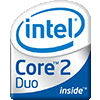
Qualcomm Snapdragon 665 Benchmark, Test and specs
Last updated:
The Qualcomm Snapdragon 665 has 8 CPU cores and can process 8 threads at the same time. The processor was presented in Q2/2019 and is based on the 7. Generation of the Qualcomm Snapdragon series. In the Geekbench 5 benchmark, the Qualcomm Snapdragon 665 achieved a result of 306 points (single-core) or 1,254 points (multi-core).

| Name: | Qualcomm Snapdragon 665 |
|---|---|
| Family: | Qualcomm Snapdragon (102) |
| CPU group: | Qualcomm Snapdragon 662/665 (2) |
| Architecture: | Kryo 260 |
| Segment: | Mobile |
| Generation: | 7 |
| Predecessor: | -- |
| Successor: | -- |
CPU Cores and Base Frequency
The Qualcomm Snapdragon 665 has 8 cores. The clock frequency of the Qualcomm Snapdragon 665 is 2.00 GHz. An initial performance assessment can be made using the number of CPU cores.
| CPU Cores / Threads: | 8 / 8 |
|---|---|
| Core architecture: | hybrid (big.LITTLE) |
| A-Core: | 4x Kryo 260 Gold |
| B-Core: | 4x Kryo 260 Silver |
| Hyperthreading / SMT: | No |
|---|---|
| Overclocking: | No |
| A-Core Frequency: | 2.00 GHz |
| B-Core Frequency: | 1.80 GHz |
Artificial Intelligence and Machine Learning
Processors with the support of artificial intelligence (AI) and machine learning (ML) can process many calculations, especially audio, image and video processing, much faster than classic processors. Algorithms for ML improve their performance the more data they have collected via software. ML tasks can be processed up to 10,000 times faster than with a classic processor.
| AI hardware: | Qualcomm AI engine |
|---|---|
| AI specifications: | Hexagon 685 @ 3 TOPS |
Internal Graphics
The Qualcomm Snapdragon 665 has an integrated graphics that the system can use to efficiently play back videos. The Qualcomm Snapdragon 665 has the Qualcomm Adreno 610 installed, which has -- streaming multiprocessors (128 shaders).
| GPU name: | Qualcomm Adreno 610 |
|---|---|
| GPU frequency: | |
| GPU (Turbo): | No turbo |
| Compute units: | -- |
| Shader: | 128 |
| Hardware Raytracing: | No |
| Release date: | Q2/2019 |
| Max. displays: | 0 |
|---|---|
| Generation: | 6 |
| Direct X: | 12.1 |
| Technology: | 11 nm |
| Max. GPU Memory: | 4 GB |
| Frame Generation: | No |
Hardware codec support
Processors with integrated graphics can process video codecs faster. Support for modern codecs can significantly increase system efficiency during video playback.
| h265 / HEVC (8 bit): | Decode |
|---|---|
| h265 / HEVC (10 bit): | Decode |
| h264: | Decode / Encode |
| VP8: | Decode |
| VP9: | Decode |
| AV1: | No |
|---|---|
| AVC: | Decode |
| VC-1: | Decode |
| JPEG: | Decode / Encode |
Memory & PCIeThe Qualcomm Snapdragon 665 supports a maximum of 8 GB memory. Depending on the mainboard, the processor can use a maximum of 2 (Dual Channel) memory channels. This results in a maximum bandwidth of the main memory of 14.9 GB/s. |
|
| Memory type: | Memory bandwidth: |
|---|---|
| LPDDR4X-3733 LPDDR3-1866 | 14.9 GB/s 7.5 GB/s |
| Max. Memory: | 8 GB |
| Memory channels: | 2 (Dual Channel) |
| ECC: | No |
| PCIe: | |
| PCIe Bandwidth: | -- |
Thermal ManagementThe Qualcomm Snapdragon 665 has a TDP of . Based on the TDP, the system manufacturer can and must adapt the cooling solution to the processor. |
|
|---|---|
| TDP (PL1 / PBP): | |
| TDP (PL2): | -- |
| TDP up: | -- |
| TDP down: | -- |
| Tjunction max.: | -- |
Technical details
Modern production reduces the waste heat of a processor and increases its efficiency. The Qualcomm Snapdragon 665 is made in 11 nm and has 0.00 MB cache.
| Technology: | 11 nm |
|---|---|
| Chip design: | Chiplet |
| Socket: | -- |
| L2-Cache: | -- |
| L3-Cache: | -- |
| AES-NI: | No |
| Operating systems: | Android |
| Virtualization: | None |
|---|---|
| Instruction set (ISA): | Armv8-A (64 bit) |
| ISA extensions: | -- |
| Release date: | Q2/2019 |
| Release price: | -- |
| Part Number: | SM6125 |
| Documents: | Technical data sheet |
Rate this processor
Benchmark results

The benchmark results for the Qualcomm Snapdragon 665 have been carefully checked by us. We only publish benchmark results that have been created by us or that have been submitted by a visitor and then checked by a team member. All results are based on and fullfill our benchmark guidelines.
Geekbench 5, 64bit (Single-Core)
Geekbench 5 is a cross plattform benchmark that heavily uses the systems memory. A fast memory will push the result a lot. The single-core test only uses one CPU core, the amount of cores or hyperthreading ability doesn't count.

|
Intel Celeron N3450
4C 4T @ 2.20 GHz |
||

|
Intel Core2 Duo E6420
2C 2T @ 2.13 GHz |
||

|
Intel Atom x7-E3950
4C 4T @ 2.00 GHz |
||
|
|
Qualcomm Snapdragon 665
8C 8T @ 2.00 GHz |
||

|
Intel Celeron 900
1C 1T @ 0.80 GHz |
||

|
MediaTek Helio G80
8C 8T @ 2.00 GHz |
||

|
Intel Atom C3808
12C 12T @ 2.00 GHz |
||
Geekbench 5, 64bit (Multi-Core)
Geekbench 5 is a cross plattform benchmark that heavily uses the systems memory. A fast memory will push the result a lot. The multi-core test involves all CPU cores and taks a big advantage of hyperthreading.

|
AMD A8-5500
4C 4T @ 3.70 GHz |
||

|
Intel Core i3-4000M
2C 4T @ 2.40 GHz |
||

|
Intel Pentium J4205
4C 4T @ 2.40 GHz |
||
|
|
Qualcomm Snapdragon 665
8C 8T @ 2.00 GHz |
||

|
Intel Core i3-560
2C 4T @ 3.33 GHz |
||

|
Intel Core i5-655K
2C 4T @ 3.20 GHz |
||

|
Intel Core i5-650
2C 4T @ 3.20 GHz |
||
Geekbench 6 (Single-Core)
Geekbench 6 is a benchmark for modern computers, notebooks and smartphones. What is new is an optimized utilization of newer CPU architectures, e.g. based on the big.LITTLE concept and combining CPU cores of different sizes. The single-core benchmark only evaluates the performance of the fastest CPU core, the number of CPU cores in a processor is irrelevant here.

|
Intel Celeron 3215U
2C 2T @ 1.70 GHz |
||

|
Intel Celeron 3755U
2C 2T @ 1.70 GHz |
||

|
Intel Celeron N4100
4C 4T @ 2.40 GHz |
||
|
|
Qualcomm Snapdragon 665
8C 8T @ 2.00 GHz |
||

|
Qualcomm Snapdragon 662
8C 8T @ 2.00 GHz |
||

|
Intel Atom x6425RE
4C 4T @ 1.90 GHz |
||

|
Intel Atom x6427FE
4C 4T @ 1.90 GHz |
||
Geekbench 6 (Multi-Core)
Geekbench 6 is a benchmark for modern computers, notebooks and smartphones. What is new is an optimized utilization of newer CPU architectures, e.g. based on the big.LITTLE concept and combining CPU cores of different sizes. The multi-core benchmark evaluates the performance of all of the processor's CPU cores. Virtual thread improvements such as AMD SMT or Intel's Hyper-Threading have a positive impact on the benchmark result.

|
Intel Core i5-3320M
2C 4T @ 2.60 GHz |
||

|
MediaTek MT8183
8C 8T @ 2.00 GHz |
||

|
Intel Core i5-2390T
2C 4T @ 2.70 GHz |
||
|
|
Qualcomm Snapdragon 665
8C 8T @ 2.00 GHz |
||

|
Qualcomm Snapdragon 662
8C 8T @ 2.00 GHz |
||

|
MediaTek Helio P60
8C 8T @ 2.00 GHz |
||

|
Intel Pentium G3420
2C 2T @ 3.20 GHz |
||
iGPU - FP32 Performance (Single-precision GFLOPS)
The theoretical computing performance of the internal graphics unit of the processor with simple accuracy (32 bit) in GFLOPS. GFLOPS indicates how many billion floating point operations the iGPU can perform per second.

|
AMD A6-5350M
AMD Radeon HD 8450G @ 0.72 GHz |
||

|
AMD A6-5357M
AMD Radeon HD 8450G @ 0.72 GHz |
||

|
MediaTek Helio G99
ARM Mali-G57 MP2 @ 1.07 GHz |
||
|
|
Qualcomm Snapdragon 665
Qualcomm Adreno 610 @ 0.00 GHz |
||

|
Qualcomm Snapdragon 680 4G
Qualcomm Adreno 610 @ 0.00 GHz |
||

|
Qualcomm Snapdragon 662
Qualcomm Adreno 610 @ 0.00 GHz |
||

|
Qualcomm Snapdragon 460
Qualcomm Adreno 610 @ 0.00 GHz |
||
AnTuTu 9 Benchmark
The AnTuTu 9 benchmark is very well suited to measuring the performance of a smartphone. AnTuTu 9 is quite heavy on 3D graphics and can now also use the "Metal" graphics interface. In AnTuTu, memory and UX (user experience) are also tested by simulating browser and app usage. AnTuTu version 9 can compare any ARM CPU running on Android or iOS. Devices may not be directly comparable when benchmarked on different operating systems.
In the AnTuTu 9 benchmark, the single-core performance of a processor is only slightly weighted. The rating is made up of the multi-core performance of the processor, the speed of the working memory, and the performance of the internal graphics.
In the AnTuTu 9 benchmark, the single-core performance of a processor is only slightly weighted. The rating is made up of the multi-core performance of the processor, the speed of the working memory, and the performance of the internal graphics.

|
MediaTek Helio P70
8C 8T @ 2.10 GHz |
||

|
MediaTek Helio P60
8C 8T @ 2.00 GHz |
||
|
|
HiSilicon Kirin 710A
8C 8T @ 2.00 GHz |
||
|
|
Qualcomm Snapdragon 665
8C 8T @ 2.00 GHz |
||

|
Qualcomm Snapdragon 460
8C 8T @ 1.80 GHz |
||

|
UNISOC T700
8C 8T @ 1.80 GHz |
||

|
Samsung Exynos 850
8C 8T @ 2.00 GHz |
||
AnTuTu 8 Benchmark
The AnTuTu 8 Benchmark measures the performance of a SoC. AnTuTu benchmarks the CPU, GPU, Memory as well as the UX (User Experience) by simulating browser and app usage. AnTuTu can benchmark any ARM CPU that runs under Android or iOS. Devices may not be directly compareable if the benchmark has been performed under different operating systems.
In the AnTuTu 8 benchmark, the single-core performance of a processor is only slightly weighted. The evaluation consists of the multi-core performance of the processor, the speed of the RAM and the performance of the internal graphics.
In the AnTuTu 8 benchmark, the single-core performance of a processor is only slightly weighted. The evaluation consists of the multi-core performance of the processor, the speed of the RAM and the performance of the internal graphics.

|
Qualcomm Snapdragon 670
8C 8T @ 2.00 GHz |
||

|
Samsung Exynos 8895
8C 8T @ 2.30 GHz |
||

|
Apple A9
2C 2T @ 1.85 GHz |
||
|
|
Qualcomm Snapdragon 665
8C 8T @ 2.00 GHz |
||

|
Samsung Exynos 9610
8C 8T @ 2.30 GHz |
||

|
MediaTek Helio P60
8C 8T @ 2.00 GHz |
||
|
|
HiSilicon Kirin 710A
8C 8T @ 2.00 GHz |
||
Estimated results for PassMark CPU Mark
Some of the CPUs listed below have been benchmarked by CPU-monkey. However the majority of CPUs have not been tested and the results have been estimated by a CPU-monkey’s secret proprietary formula. As such they do not accurately reflect the actual Passmark CPU mark values and are not endorsed by PassMark Software Pty Ltd.

|
AMD Phenom II X3 715
3C 3T @ 2.80 GHz |
||

|
AMD Phenom II X3 720
3C 3T @ 2.80 GHz |
||

|
Intel Celeron G5925
2C 2T @ 3.60 GHz |
||
|
|
Qualcomm Snapdragon 665
8C 8T @ 2.00 GHz |
||

|
Intel Core i7-5550U
2C 4T @ 2.90 GHz |
||

|
Intel Core i5-4200M
2C 4T @ 3.10 GHz |
||

|
Intel Core i7-920
4C 8T @ 2.66 GHz |
||
Performance for Artificial Intelligence (AI) and Machine Learning (ML)
Processors with the support of artificial intelligence (AI) and machine learning (ML) can process many calculations, especially audio, image and video processing, much faster than classic processors. The performance is given in the number (trillions) of arithmetic operations per second (TOPS).

|
Qualcomm Snapdragon 730
8C 8T @ 2.20 GHz |
||

|
Qualcomm Snapdragon 480 5G
8C 8T @ 2.00 GHz |
||

|
Qualcomm Snapdragon 680 4G
8C 8T @ 2.40 GHz |
||
|
|
Qualcomm Snapdragon 665
8C 8T @ 2.00 GHz |
||

|
Qualcomm Snapdragon 678
8C 8T @ 2.20 GHz |
||

|
Qualcomm Snapdragon 712
8C 8T @ 2.30 GHz |
||

|
Qualcomm Snapdragon 710
8C 8T @ 2.20 GHz |
||
Benchmarks

Geekbench 5 (SC)
2,488 entries
2,488 entries

Geekbench 5 (MC)
2,461 entries
2,461 entries

Geekbench 6 (SC)
1,755 entries
1,755 entries

Geekbench 6 (MC)
1,703 entries
1,703 entries

FP32 SP (iGPU)
2,042 entries
2,042 entries

AnTuTu 9 Benchmark
90 entries
90 entries

AnTuTu 8 Benchmark
118 entries
118 entries

PassMark CPU-Mark
2,392 entries
2,392 entries

AI / ML Performance
119 entries
119 entries
Popular comparisons
back to index





